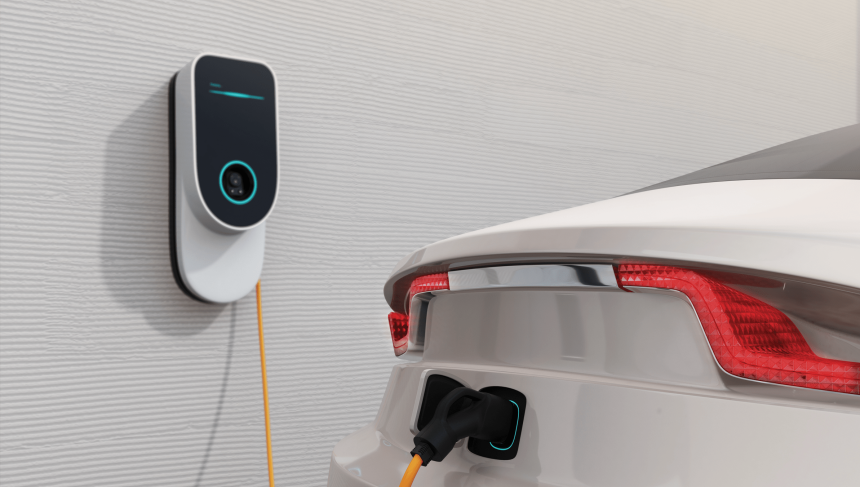Electric vehicle (EV) charging is not a one-size-fits-all solution. As the world moves towards electrification of transport, understanding the different types of chargers, their functionalities, and their suitability for various needs becomes crucial. From the slow yet steady Level 1 chargers ideal for overnight home use to the rapid DC fast chargers catering to commercial setups, each type offers distinct benefits. The key lies in understanding your specific requirements – whether it’s charging speed, cost, or installation complexity – to make an informed decision.
The evolution of EV charging technology is a testament to the rapid advancements in the field. Initially, the focus was primarily on developing a reliable and safe charging mechanism. Today, the technology has progressed to offer features like smart charging, which allows for better energy management and integration with renewable energy sources. This evolution is crucial in understanding the current landscape of EV charging solutions, which range from basic models to highly sophisticated ones.
Navigating the current EV charging infrastructure landscape can be daunting. Availability, distribution, and accessibility of charging stations vary greatly across regions. Urban areas might boast a higher concentration of public charging stations, while rural areas may still be catching up. This disparity in charging infrastructure availability plays a significant role in determining the most suitable EV charger for an individual’s needs, highlighting the importance of a thorough assessment before making a choice.
Assessing Your Charging Needs
Identifying your charging requirements is the first step in selecting the right EV charger. This involves considering the type of vehicle you own, your driving patterns, and even the geography of your area. For instance, if you frequently embark on long road trips, investing in a charger with faster charging capabilities might be more beneficial than a standard home charger.
The type of electric vehicle you own significantly influences your choice of charger. Battery size and the vehicle’s charging capacity dictate the type of charger that will be most efficient. While some EVs are equipped to handle fast charging, others might only be compatible with slower, more steady charging options. Understanding these nuances is crucial in selecting a charger that not only meets your current needs but also aligns with potential future upgrades to your vehicle.
Your lifestyle plays an equally important role in determining the right EV charging solution. For a daily commuter, a home charger might suffice, but for someone who frequently travels long distances, access to a network of fast-charging stations becomes paramount. Additionally, if your residence lacks the infrastructure for a home charger, exploring public or workplace charging options becomes necessary, underscoring the need for a comprehensive evaluation of your lifestyle and charging options.
Practical Case: a Solution
When considering a comprehensive EV charging plan, ChargeTronix emerges as a noteworthy option. As a premier manufacturer and distributor of EV chargers in North and Latin America, ChargeTronix stands out for its modular, robust, and powerful designs. Catering to a diverse range of clients, from individual homeowners to large commercial setups, their chargers are engineered for maximum functionality and uptime. This versatility makes it an ideal choice for those seeking a reliable and adaptable EV charging solution.
Their focus on customization and reliability is evident in their product offerings. Their chargers come with features like integrated credit card and RFID card readers, advanced cord management systems, and the flexibility to energize multiple dispensers through their innovative distributed design. This level of customization ensures that each client gets a charging solution tailored to their specific needs, enhancing the overall user experience.
The Different Types of EV Chargers
The world of EV chargers is broadly categorized into three levels – Level 1, Level 2, and DC Fast Chargers, each serving different purposes. Level 1 chargers are the most basic, plugging into standard household outlets. They are ideal for overnight charging, providing a slow yet steady charge. Although not the quickest option, they require no additional installation and are a cost-effective solution for many EV owners.
Level 2 chargers represent a middle ground, offering faster charging speeds and are commonly found in residential and commercial settings. These chargers require a 240V outlet and some installation work but significantly reduce charging time compared to Level 1 chargers. They strike a balance between speed and convenience, making them a popular choice among EV owners.
For those needing a quicker charge, DC Fast Chargers are the go-to solution. These chargers are capable of delivering a substantial amount of charge in a short period, making them ideal for commercial use or public charging stations. While not typically used for home charging due to their higher cost and installation requirements, they are an essential part of the EV infrastructure, providing a quick charging option for those on the go.
Installation Considerations
When it comes to installing an EV charger, several factors need consideration. Firstly, understanding the electrical requirements of your chosen charger is crucial. Does your home electrical system need an upgrade? What kind of wiring will the installation require? These are critical questions to address. Additionally, the physical space for the charger should be considered, ensuring easy access and convenience.
The debate between professional versus DIY installation hinges on the complexity of the installation and personal comfort with electrical systems. While Level 1 chargers often require no special installation, Level 2 and DC fast chargers might need professional intervention. It’s not just about the installation but also ensuring adherence to local building codes and safety standards.
Safety and compliance cannot be overstated in the installation of EV chargers. Proper installation ensures not only the efficient functioning of the charger but also the safety of your home and neighborhood. Adhering to local regulations and standards is a must, as these guidelines are in place to ensure the safe operation of high-voltage equipment. This is where professional installation often becomes a necessity, providing peace of mind that your charger is set up correctly and safely.
Cost Analysis and Budgeting
Investing in an EV charger involves understanding the balance between initial costs and long-term savings. While the upfront cost of purchasing and installing a charger can be substantial, the long-term savings in fuel costs and environmental benefits are significant. Additionally, considering the convenience of having a personal charging station at home adds to the value of this investment.
Incentives and rebates play a crucial role in offsetting the costs of EV charger installation. Many governments and local authorities offer financial assistance programs to encourage the adoption of EVs and their associated infrastructure. These incentives can significantly reduce the overall cost and should be a key consideration in the budgeting process.
Budgeting for the right charger involves more than just considering the purchase price. It’s about evaluating ongoing operational costs, potential savings on fuel, and the long-term benefits of having a reliable and convenient charging solution. This holistic approach to budgeting ensures that you choose a charger that not only fits your current financial situation but also aligns with your future goals and needs.
Smart Charging Features
The advent of smart chargers has revolutionized EV charging, bringing features like connectivity, remote management, and integration with home energy systems. These chargers allow users to control and monitor their charging remotely, offering convenience and efficiency. They can also optimize charging times based on energy rates, reducing costs.
The benefits of smart charging extend beyond simple convenience. They enable better energy management, allowing users to charge their EVs during off-peak hours for cost savings. Additionally, smart chargers can integrate with home energy management systems, contributing to a more sustainable and efficient energy usage pattern.
Selecting a smart charger involves assessing not just the technical specifications but also how well it integrates with your lifestyle and home energy system. The right smart charger should offer the features you need, be compatible with your EV, and enhance your overall charging experience, both in terms of convenience and cost-efficiency.
Brand and Model Considerations
When choosing an EV charger, the brand and model play a significant role. A brand’s reputation for quality, reliability, and customer support can greatly influence your decision. It’s important to research and understand the track record of different brands in the market, assessing their commitment to quality and customer satisfaction.
Comparing models and features is an essential step in the selection process. Each charger model comes with its unique set of features, from charging speed to connectivity options. Understanding these features and how they align with your specific needs is crucial. It’s not just about choosing the most advanced model, but the one that offers the features that best suit your lifestyle and charging requirements.
User reviews and expert recommendations provide valuable insights into the real-world performance of different EV chargers. They can highlight potential issues or benefits that may not be immediately apparent from product specifications. Leveraging these sources of information can help you make a more informed choice, ensuring that you select a charger that has been vetted by actual users and industry experts.
Advanced Charging Technologies
Exploring innovations in EV charging reveals a fascinating array of advancements. Technologies like wireless charging and solar-powered charging stations are at the forefront, offering new possibilities for EV owners. These innovations not only enhance convenience but also contribute to the sustainability of EV charging infrastructure.
The future of EV charging is brimming with potential, with trends pointing towards even faster, more efficient, and more integrated charging solutions. As technology evolves, the charging experience is set to become more seamless and integrated into our daily lives, further encouraging the adoption of electric vehicles.
Choosing a future-proof charging solution is about anticipating these technological advancements and ensuring that the charger you select will remain relevant and functional in the years to come. It involves considering factors like upgradeability, compatibility with new EV models, and the ability to integrate with emerging smart home technologies.
Making the Final Decision
Choosing the right EV charging solution is a decision that encompasses various factors. It’s not merely about the technical specifications of the charger but also about how it fits into your lifestyle, budget, and future plans. The final decision should be a balance between practicality, cost-effectiveness, and adaptability to future advancements in EV technology.
Before making a purchase, it’s essential to revisit your initial needs assessment. Ensure that the charger you are considering aligns with your vehicle type, charging speed requirements, and installation possibilities. It’s also important to factor in any potential changes in your driving habits or vehicle upgrades in the foreseeable future.
Cost remains a significant consideration in the decision-making process. While it’s tempting to opt for the most affordable option, it’s crucial to consider the long-term value. A more expensive charger might offer features like faster charging speeds or smart technology, which can save you time and money in the long run. Additionally, exploring available rebates and incentives can help alleviate some of the financial burdens.
Finally, consider the after-sales support and warranty offered by the manufacturer. Reliable customer service and a robust warranty can provide peace of mind, knowing that you have support in case of any issues. This is where choosing a reputable brand like ChargeTronix, known for its commitment to customer satisfaction and quality, can be advantageous. Their comprehensive installation tutorials and customer service support ensure a smooth transition into the world of EV charging, offering an added layer of reassurance for first-time and experienced EV owners alike.
In summary, selecting the right EV charging solution requires a careful blend of technical understanding, practical considerations, and an eye on the future. By thoroughly assessing your needs, exploring the range of options available, and considering the evolving landscape of EV technology, you can make an informed decision that enhances your EV experience. Remember, the right charger is more than just a tool for powering your vehicle; it’s a critical component of your daily life, reflecting your commitment to sustainability and innovation. The choice of an EV charger, therefore, should not be taken lightly but rather seen as an integral part of your journey in the world of electric vehicles.














